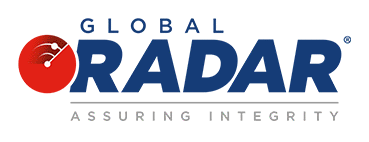Two of the more common themes seen when assessing factors contributing to the potency and ultimate success of a nation’s anti-money laundering (AML) efforts are international cooperation and the ability to accrue and utilize valuable financial information in criminal investigations. Cooperation across international borders can be complex for a number of reasons, primarily due to variations in AML legislation, as well as the potential lack of awareness of, and expertise in, current matters and policies found outside of one’s own country. It is fair to say that most well-developed countries around the world would deem themselves guilty of lacking the amount of international collaboration necessary to take their procedures for combatting illicit financial activity to the next level, let alone lesser-developed countries. While a lot contributes to successful international relations in this regard, having the proper procedures in place for gathering pertinent information on financial criminals is far less complicated, yet the inconsistencies found in this area too have become a cause for concern both domestically in the United States and abroad. A trend has emerged that has seen financial information that could be vital for cracking down on illicit financial activity at the international level not being used effectively by the proper authorities.
The article “EU Money Laundering Analysis Offers Lesson for Latin America”, cited in BSA News Now on September 12th discusses a report recently released by the European police agency “Europol” which analyzed the rate of prosecutions for criminal financial activity within the European Union (EU) over the last ten years. Titled “From Suspicion to Action – Converting financial information into greater operational impact”, the report discusses how important suspicious activity reports (STR’s) are in the initial formulation of money laundering investigations due to the vast amount of pertinent information such reports generally contain. SAR’s are documents that financial institutions (FI’s) must file with the Financial Crimes Enforcement Network (FinCEN), or a country’s respective enforcement agency, within 30 calendar days after the date of initial detection of a suspected incident of money laundering or fraud. In the U.S., the filing of SAR’s are required by law under the Bank Secrecy Act of 1970, and prohibits any employee of the FI involved from notifying the individual involved of the transaction in question. The information contained in these reports, if accurately completed, often aid enforcement agencies in the initiation of major money laundering investigations, as well as in the identification of emerging trends and patterns associated with financial crime. Information generally detailed in these reports includes specific suspect information such as the suspect(s) name, occupation, and nature of business, the mechanisms used to facilitate the questionable transaction, when the activity took place, and the reason why the activity was deemed suspicious. Given the wealth of personal information they supply, these reports are often viewed as the “buildings blocks” of successful money laundering investigations.
In regards to the European Union, the Europol report has found that between 2006 and 2014, “the EU saw a 70 percent increase in suspicious transaction reports”, although it is estimated that only “10 percent of STR’s are put to use each year” (Bargent, 2017). This small rate of usage also coincides with low success rates for investigations into money laundering that begin with a STR filing. Europol found that between 2010 and 2014, only “2.2 percent of estimated proceeds of crime were provisionally seized or frozen, and only 1.1 percent of criminal profits were ultimately confiscated at the EU level”(Bargent, 2017). This leads one to believe that although the necessary information is present, the practices in place for capitalizing on the “cheat sheet” that is a SAR are severely lacking. Europol believes that the vast increase in transaction reporting itself, along with a lack of information exchange across international borders, are two of the primary causes of the low success rates seen in prosecution of financial criminals and the confiscation of their illicit assets. The exponential growth of STR filings seen in recent years has posed a problem for both financial institutions and federal authorities alike in that there is a limit on the amount of data that can be analyzed within a specific time period. What has basically ensued in these cases has been a profound amount of data collection and not enough analysis and subsequent action. In other cases there are discrepancies in the quality of reports being filed, which amounts to very few leads being spawned due to the lack of solid/viable information there is to work with.
In its later stages, the report provides potential remedies for these compliance pitfalls, suggesting that enforcement agencies should shift their current practice of “analyzing high volumes of information to a more targeted approach focused on relevance rather than quantity of data” (Bargent, 2017). Europol also notes that more widespread data sharing practices between nations can also help remedy this situation, as information should continue to be shared between financial institutions, but should also include law enforcement agencies and customs authorities.
The report also offered recommendations for the implementation of successful anti-money laundering (AML) practices and procedures in Latin America which could increase the success rates of their own struggling money laundering investigations in both the short and long term. Although numerous Latin American countries have improved their respective AML frameworks by leaps and bounds in recent years, the lack of resources and education needed for improved AML investigation is evident. Europol suggested that “developing mechanisms to better sort, analyze and share information could have a huge impact on the results obtained from the resources allocated”, and that greater regional cooperation is essential in order to target financial crime at the “transnational level, where much of the activity takes place” (Bargent, 2017). Nevertheless, it will likely take a fair amount of time and effort for the most potent AML practices to be incorporated in the EU and Latin America alike.
Weekly Roundup
DOJ Calls for AML Convictions
Last week, the U.S. Department of Justice recommended that Filipino prosecutors file charges against the former branch manager of the Philippines-based Rizal Commercial Banking Corporation (RCBC) for her alleged role in a large scale scandal the bank was involved in last year. The former RCBC employee, Maia Santos-Deguito, is suspected of playing a major role in the “theft of $101 million from an account controlled by the Bangladeshi government at the Federal Reserve Bank of New York” in 2016 (Beckett, 2017). While Deguito is currently the lowest ranking bank official with ties to the heist, she is likely to face the greatest scrutiny following the DOJ’s recent decision to drop charges against several other individuals involved in the laundering effort. It is believed that Deguito and other individuals opened accounts at her branch using fake names in order to facilitate the crime while attempting to conceal their own identities, a ploy which ultimately failed. The DOJ has called for eight counts of violation of the Anti-Money Laundering Act to be brought against Deguito. Deguito’s lawyer has deemed the charges as “laughable”, stating that the DOJ’s conclusion that Deguito – “a mere bank manager” – managed to steal $81 million from the Federal Reserve and Bank of Bangladesh and launder it through the Philippine banking system by herself is preposterous.
The 2016 scandal made international headlines in 2016, and involved roughly $100 million that was illegally removed from the Federal Reserve Bank of New York using the SWIFT interbank messaging system. The laundered funds were moved via transfer requests, with $81 million ending up in several RCBC foreign currency accounts, and the other $20 million making its way to an account in Sri Lanka. The damage could have been much worse however, had it not been for federal authorities blocking a transfer for a reported $850 million that was set to reach countless personal bank accounts in the Philippines. The Philippines involvement in a crime of this magnitude called for a greater emphasis on adequate resources being provided to better comply with the Anti-Money Laundering Act. Earlier this year, the Central Bank of the Philippines and RCBC settled the remaining balance of the record $1 billion (Philippine Peso) fine levied against the bank for non-compliance with banking regulations related to the multi-million dollar Bangladesh money laundering scandal.
HSBC Freezes Customer Accounts For No Reason
Small businesses throughout the United Kingdom continue to voice their displeasure with HSBC’s current crusade against financial crime, one that has left many customers with frozen assets and terminated accounts. After being fined $1.9 billion (USD) by United States authorities in 2012 for numerous compliance failures related to the laundering of money for Mexican drug cartels, HSBC has increased scrutiny of its clients and has gone as far as to engage in the now-popular trend of “de-risking”, a practice undertaken by financial institutions (FI’s) across the globe of late. In order to avoid the loss of its U.S. banking license, the new, strict stance adopted in March of 2017 has led to the freezing of hundreds of accounts held by entrepreneurs and small business owners, most of whom have zero involvement in criminal activity of any sort. It has been reported that “hundreds more accounts have been threatened with closure if the companies do not respond to demands for detailed information on overseas payments” (Evans, 2017). Businesses with foreign exchange accounts, or businesses that pay foreign suppliers, have been the most common targets for HSBC’s crackdown thus far.
HSBC maintains that the services provided to its customers will only be altered if the information requested is not provided. However, many have claimed that they have fully cooperated with HSBC’s inquiries, only to have had their accounts frozen and their activity blocked anyway, leaving many both domestically and abroad struggling from a financial standpoint. HSBC’s UK leader of commercial banking has asked that the businesses that have been affected contact the bank to resolve their issues. Early returns on this suggestion have already had negative results however, as countless individuals who have attempted to speak to bank officials about the matter have received no resolution, nor apology for their unwarranted troubles.
China Ups Its AML Efforts
In a move greeted with great approval and support from international bodies across the globe, the Chinese government will begin to incorporate new, thorough procedures to better handle financial crime within the country by the year 2020. In a statement released on the topic, the Chinese government stated that the new program “should be able to effectively prevent and control money laundering, terrorist financing, and tax evasion by improving laws and regulations and coordinating the work of different government departments” (Xinhua, 2017). While China’s anti-money laundering efforts have improved drastically since the introduction of the republic’s anti-money laundering law in 2007, there are still many areas that need improvement in order to ensure a greater level of financial security. An article written on the decision to implement the new-and-improved program writes that the current supervision mechanism in China is “far from perfect” and adds that “interdepartmental information sharing is insufficient and China’s international participation in this field does not match its international status” (Xinhua, 2017).
The government plans to hold a joint conference with top intergovernmental groups to discuss viewpoints and ideas to potentially improve current practices in the coming months. The next step would then be to ultimately create a strategy for the development and incorporation of such plans. Legislation regarding money laundering and terrorist financing is also on the docket for change, as are the risk monitoring and supervisory procedures that both financial and non-financial entities (i.e. real estate agencies) will be subjected to. The efforts made by the Chinese government to reinforce their policies in regards to financial crime will hopefully set a positive example for other countries in the region, and may create a chain of events that sees a premium placed on financial security throughout Asia in years to come.

